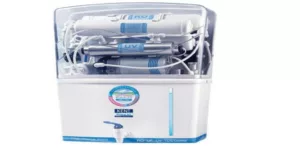Water purifiers have become a mandatory appliance these days for every house. Most of the drinking water is contaminated with various biological and chemical contaminants, which are the root cause of many water-borne diseases. Boiling of water kills the bacteria and viruses, but the chemical contaminants cannot be removed. To ensure clean, hygienic and safe drinking water, which is vital for your health, you need to get a water purifier installed.
The market is flooded with multiple water purifiers all having their own USPs and claiming to be the best among the lot. Before deciding on any one, you need to keep few things in mind.
1. Water Quality in Your Area
The very first thing that you need to find is the quality of water that reaches your home. You need to figure out if it is hard water having high salt content or soft water. If the water is soft, a carbon activated filter will be a good choice. But, if it is hard, having high TDS and salinity, then RO purifier will be a better option.
2. Contamination
Generally, dissolved pesticides, bacteria, lead, nitrate etc. are present in water, which have adverse effect on health. If the water has a high percentage of both microbes and chemicals, UV-based RO filtration will be an ideal choice. The UV rays penetrate the cells of the microbes and destroy their ability to reproduce. The RO membrane in the filter removes these dead microbes as well as the salts present, making it safe for consumption.
3. Water Pressure
All water filters require a continuous water supply and that too at good pressure. If both these things are not available, then either you will have to go for a purifier that works optimally at low pressure and has enough storage or you need to attach a pump. If the water in your area is high in TDS and contamination, you have no other option than choosing an RO purifier. As RO cannot filter optimally in less pressure, you need to attach a pump to the RO filtration unit to boost it up.
4. Electricity
Another mandatory requirement for the most advanced water purifiers having RO and UV filters to work is electricity. If you are staying in an area that has an erratic power supply and if there is no backup too, these purifiers will be difficult to operate. In such cases, you will either have to get a power backup option or if the water quality allows then you can go for activated carbon purifiers.
5. Your Requirements and Budget
You need to buy a filter that is appropriate for your family size. For a small nuclear family, you need a small purifier, while a big family will require large quantity water purifier. Today, many water purifiers equipped with different advanced technologies are available in the market. They are offered in varied price ranges. You need to consider your budget and requirements before choosing the one that suits your needs the best.
Water filters are an important home appliance today and also a long-term investment. Thus, you should consider all the above mentioned factors before zeroing in on any one and should not settle for anything but the best.








